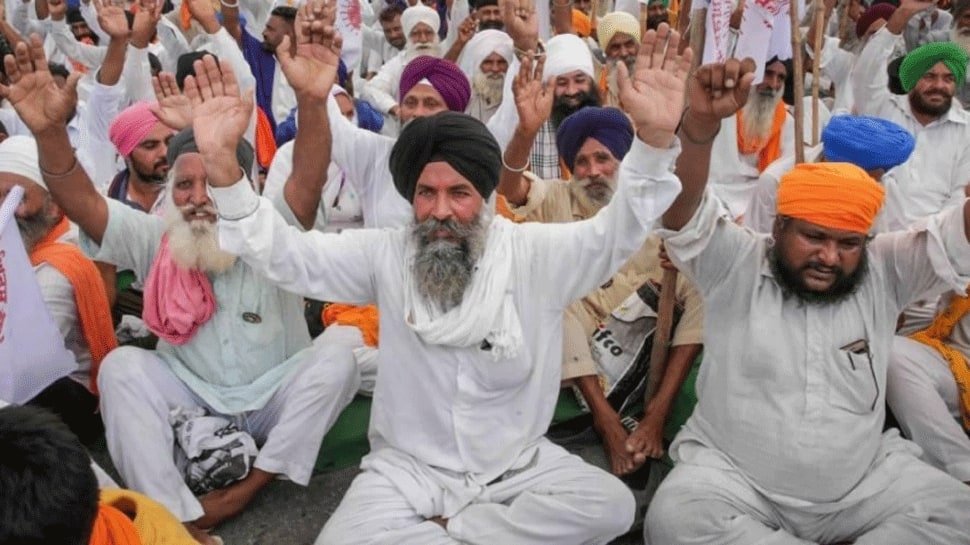Canberra: According to a scholar from Australia, millions of farmers in India would benefit from the country’s new agricultural laws, which advised activists to listen to the contrary.

In an article for foreign policy, Salvatore Babbons, an assistant scholar at the Center for Independent Studies in Sydney, stated that India’s wealthy farmers are holding on to reforms designed to help the poor.
Modi offered limited price support to farmers but organized the line on loan waiver. Instead, he promised to implement structural reforms after the election. The opposition Indian National Congress countered with a promise to “forgive all agricultural debts” across the country – a costly solution by economists as a populist magic wand, “he wrote.
“Despite activists and Western celebrities supporting the protests, we would believe that the majority of those who opposed the new laws since September, marginalized by debt and despair, were at the edge of subsistence farmers on the edge of suicide Have not been drawn. ” “The scholar added.
Babon said that these farmers fear that the laws will help weaken the existing agricultural-directed system for purchasing agricultural produce and eventually end the price support system on which they depend. They are demanding that the government repeal the reforms and guarantee the future of price support.
“The overall goal of the reforms is to transform Indian agriculture from a locally managed rural economy into a modern national industry. They will allow small farmers to specialize in niche crops, marketed nationwide through large-scale wholesalers. Can. They will also build new ones. Risk, as farmers are transformed into an entrepreneur, “according to their article for foreign policy.
He said that when the official Western media outlets “buy illegally into poor farmers” narrative, the result is pure misinformation. The articles said that the BJP’s new agricultural laws threaten livelihoods as 800 million people must grapple with the reality that in a country where 52 percent of the working population is engaged in agriculture, only 6 percent of the population is active. Modi’s performance in office
“India’s poorest farmers need reforms because most of them do not have access to high levels of government subsidies that benefit large-scale Jat farmers in Haryana and Punjab. To sell to local middlemen at spot prices Being forced, they do not have options for marketing. Their produce outside their home districts, “he said.
He said, “They lack financing and access to the futures market, management tools that most Western farmers get. The new laws are designed to solve these problems while maintaining a minimum support price for a relatively small number of farmers.” Have been made that actually receive them. “
Earlier this month, two Democratic senators – Charles Schumer and Bob Menendez – have called on the administration of US President Joe Biden to join Prime Minister Narendra Modi’s government over peasant protests in India.
Mendez, chairman of the Senate Foreign Relations Committee and prominent leader Schumer, wrote in a letter to Secretary Antony Blinken that they condemned the 26 January protests that broke out in the Red Fort that agricultural legislation passed by the Indian government was “internal.” Indian policy is “is”.
“Agricultural policy is a domestic matter for the Government of India. The UK government strongly believes that freedom of expression and the right to peaceful protest are important to any democracy, but we also accept that if a protest is illegal If the security crosses the line, the security force democracy has the right to enforce law and order, ”UK Minister of State Nigel Adams said during a debate in the Parliament complex on the issue of peaceful protest and press freedom in India.
On January 26, violence erupted during the Farmers Tractor Rally on the occasion of Republic Day.
The protesters broke barricades to enter Delhi and vandalized many parts of the national capital during their tractor rally organized in protest against the Center’s three new agricultural laws.
The farmers have continued their protest against three newly created agricultural laws – the Farmers Produce Trade and Commerce (Promotion and Facilitation) Act, 2020; The Farmers Empowerment and Protection Agreement on Price Assurance and Agricultural Services Act 2020 and the Essential Commodities (Amendment) Act, 2020 at various limits in New Delhi.

